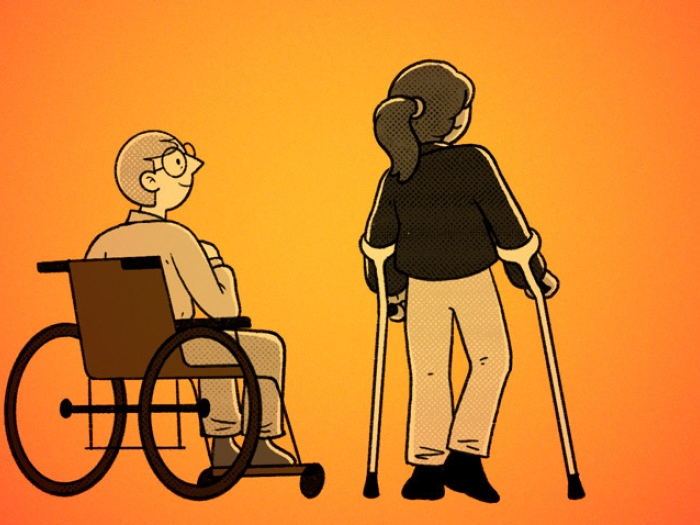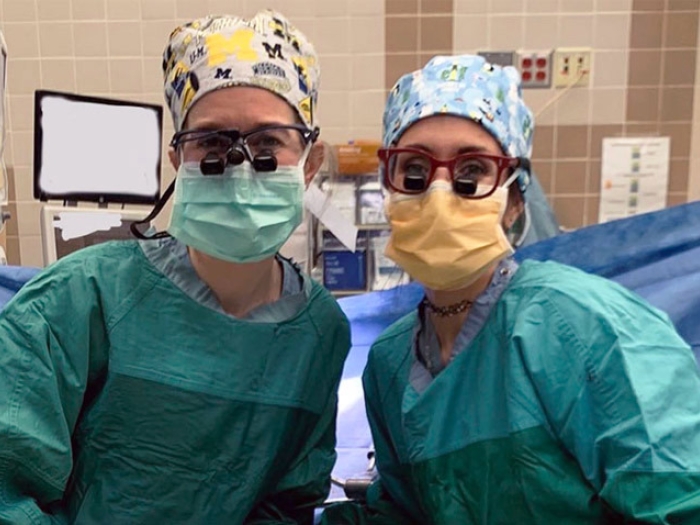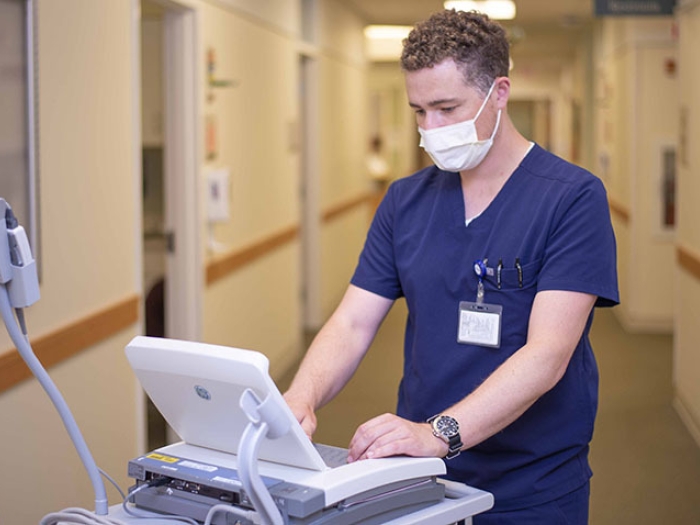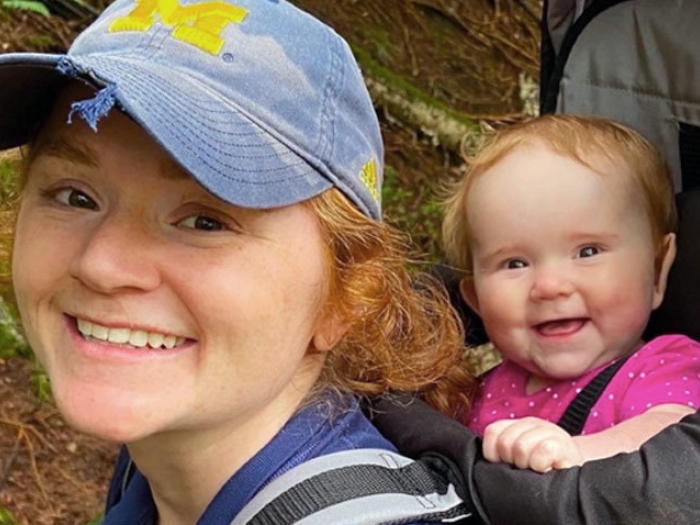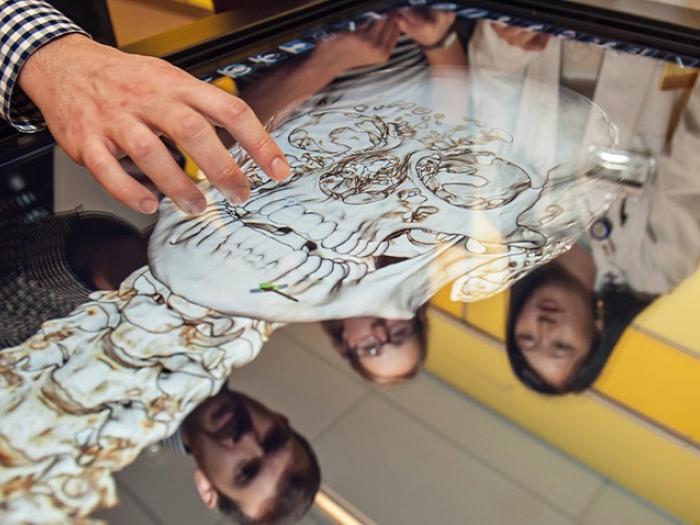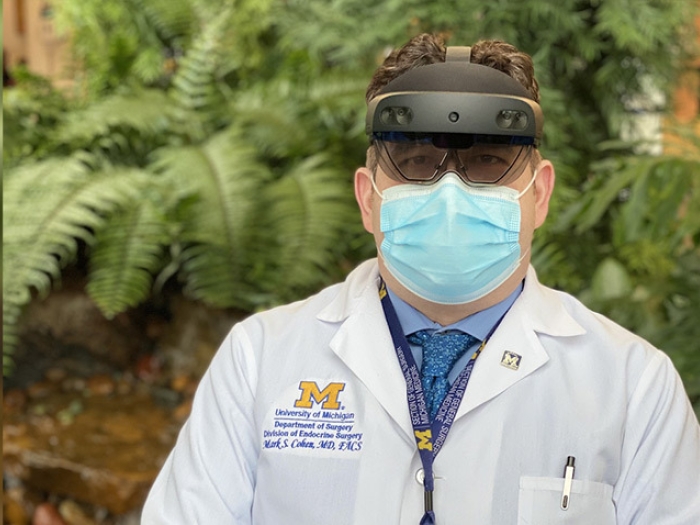An education and employment partnership seeks to fill a need for more nurses while also supporting a diverse workforce.
9:51 AM
Author |

As someone whose healthcare career began as an adult student at community college, I recognize how an associate degree can open the door to a world of opportunities.
More than that, the diversity, affordability and accessibility of community colleges may hold the key to solving one of the most daunting challenges in healthcare today – a critical shortage of nurses.
Even before the pandemic, the United States was facing a nursing shortage largely driven by demographics, with an aging population needing more care, a growing share of nurses nearing retirement age, and not enough younger people signing up to replace them.
Then came COVID-19 and a new crisis for the nation’s largest healthcare profession. One analysis found that the total number of registered nurses declined by more than 100,000 in 2021, the largest drop in four decades.
At the same time, the healthcare sector increasingly recognizes the need to improve workforce diversity, an important contributor to patient outcomes.
These dual concerns – increasing the nursing talent pool and its diversity – requires a strategic response as the U.S. Bureau of Labor Statistics predicts more than 203,000 openings for registered nurses each year through 2031.
Building talent pipelines
At University of Michigan Health-West, CEO Peter Hahn, M.D., challenged me and my colleague, associate chief nursing officer Kate Veenstra, R.N., to find ways to leverage education partnerships to improve our pipelines of nursing talent.
The first result was a recently announced local partnership that combines tuition support with paid on-the-job professional experience. Students who complete one semester of Grand Rapids Community College's Nursing Program can apply for the program and have up to three semesters of their Grand Rapids Community College tuition paid by UMH-West. They will commit to working at UMH-West for two years upon completion of the Grand Rapids Community College program and becoming licensed as registered nurses.
Like podcasts? Add the Michigan Medicine News Break on Spotify, Apple Podcasts or anywhere you listen to podcasts.
During their employment as registered nurses, UMH-West will encourage and support their completion of a bachelor’s degree in nursing, their BSN, through existing partnerships and tuition reimbursement. The program is funded with a startup grant from the University of Michigan Health-West Foundation.
The initiative is designed to remove cost barriers, including for adult learners and others who need to continue working while finishing their education. Because community college is the launching pad for a diverse student population, we also hope to ensure the new generation of nurses reflects the communities we serve.
Our goal was for 15 nursing students to sign up in December and graduate in April 2023. The program seeks to enroll 10 more nursing students each of the next three semesters: December 2023, April 2024 and December 2024.
From the perspective of Grand Rapids Community College Nursing Program, the program is expected to help students focus on completing their education and entering the workplace more quickly and better prepared. Community college students typically have close ties to their communities; easing the path to employment provides an opportunity to give back.
Establishing relationships, exploring options
Another objective is to allow participants to explore career paths, make professional connections and experience the workplace culture.
The support for participants to continue their education and toward a BSN, is an important component of the program. Speaking from my own experience, combining an associate degree with real-world, clinical experience can be the first step on a pathway to a rewarding career.
After serving in the U.S. Navy, I enrolled at Grand Rapids Community College (then known as Grand Rapids Junior College) and earned an associate degree in general studies while working in variety of health care roles, including as a certified nurse’s aide and patient care tech. I learned from colleagues and experienced a wide range of specialties.
My experience encouraged me to go on to earn bachelor’s degrees in health science and nursing, and a master’s degree in health care administration. Thanks to the foundation set in community college, I have served as chief nursing officer at UMH-West for the past five years.
Our hope is that this education partnership encourages more participants from a wide range of backgrounds to explore their own pathways and follow their passions to rewarding careers.
Papers cited:
“United States Registered Nurse Workforce Report Card and Shortage Forecast: A Revisit,” American Journal of Medical Quality. DOI: 10.1177/10628606177383
“A Worrisome Drop In The Number of Young Nurses,” Health Affairs.
DOI: 10.1377/forefront.20220412.311784
“Diversity improves performance and outcomes,” Journal of the National Medical Association. DOI: 10.1016/j.jnma.2019.01.006
Live your healthiest life: Get tips from top experts weekly. Subscribe to the Michigan Health blog newsletter
Headlines from the frontlines: The power of scientific discovery harnessed and delivered to your inbox every week. Subscribe to the Michigan Health Lab blog newsletter

Explore a variety of health care news & stories by visiting the Health Lab home page for more articles.

Department of Communication at Michigan Medicine
Want top health & research news weekly? Sign up for Health Lab’s newsletters today!
